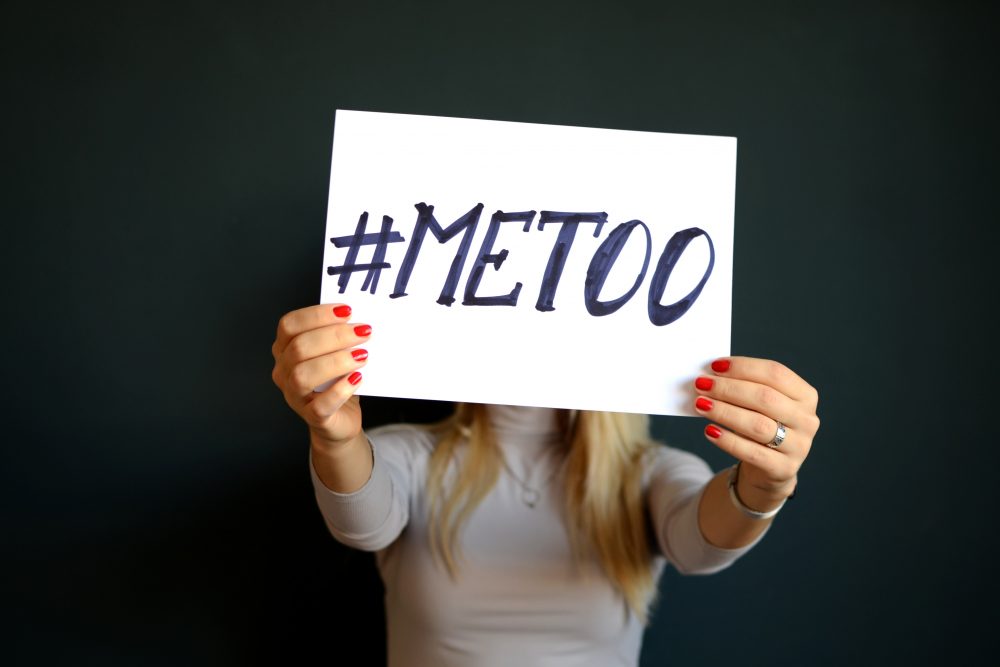A proposed government ban on companies using gagging orders to prevent staff reporting sexual harassment is merely “tinkering around the edges” of a “serious issue”, a women’s rights group has said.
The government on Sunday (July 21) announced new legislation aimed a tackling the misuse of non-disclosure agreements (NDAs) in the workplace, including a ban on employers using them to block staff sharing information with police, doctors or lawyers.
But women’s rights group the End Violence Against Women Coalition (EVAW) told RightsInfo that the measures fall far short of what is needed to tackle workplace harassment.
Rebecca Hitchen, EVAW’s campaigns manager, said: “NDAs have never been able to restrict reporting to the police – the addition of other individual professionals does not get to the root of the culture change required across workplaces when it comes to responding to sexual harassment.
“We want to see more support in place, and prevention work that is meaningful and effective. Limiting terms of NDAs is tinkering round the edges of what is a serious but commonplace issue for women.”
She added: “While it may be encouraging that government is considering additional protective measures for survivors of sexual harassment and violence in the workplace when it comes to the use of NDAs, these proposals do not go far enough.”
What Will The New Legislation Change?

Image Credit: Unsplash.
The government is proposing, “for the first time ever”, to prevent NDAs being used by employers to prevent staff disclosing information to the police; regulated care or health professionals; or legal professionals – such as doctors, lawyers or social workers.
It will also require require employers to make clear “in plain-English” the limitations of a confidentiality clause within a written agreement – to ensure individuals signing them fully understand their rights.
Lastly, it will introduce new enforcement measures to deal with confidentiality clauses that do not comply with legal requirements. NDAs that do not comply with the legal requirements will be legally void.
“As we have seen in the news recently, there are a handful of employers using NDAs to cover-up criminal acts in the workplace, including sexual harassment, assault and racist discrimination,” said Business Minister Kelly Tolhurst, announcing the proposals.
“We will not tolerate the use of NDAs to silence and intimidate victims from speaking out.
“The new legislation will stamp out misuse, tackle unacceptable workplace cultures, protect individuals and create a level playing field for businesses that comply with the law.”
This new legislation will help to end ambiguity about employees’ rights and stop the misuse of NDAs to protect corporate and personal reputations and obstruct justice.
Rebecca Hilsenrath, Equality and Human Rights Commission
The Equality and Human Rights Commission (EHRC) said that it is developing guidance on NDAs and tackling harassment to offer employers more clarity on creating safe working environments.
Rebecca Hilsenrath, the watchdog’s chief executive, said: “Harassment and discrimination should never go unanswered and unchallenged just because victims are prevented from speaking out.
“This new legislation will help to end ambiguity about employees’ rights and stop the misuse of NDAs to protect corporate and personal reputations and obstruct justice.”
NDAs cannot prevent individuals from reporting wrongdoing in the public interest, known as making a protected disclosure or “whistleblowing”.
‘Small Tweaks To Non-Disclosure Agreements Won’t Cut It’

Image Credit: Pexels.
More than 50 percent of women in the UK have been sexually harassed at work, Trade Union Congress (TUC) general secretary Frances O’Grady told RightsInfo.
“Sexual harassment has a huge impact on women’s careers and lives so we need radical change.
“Small tweaks to non-disclosure agreements won’t cut it. The government must change the law to put the responsibility for preventing harassment on employers, not victims. This would shift the burden of tackling sexual harassment away from the victims. And it would help end toxic workplace cultures that silence those who’ve been harassed.
“Anyone experiencing sexual harassment at work should join a union to make sure they are protected and respected at work.”
If you’d like to know more:
- Take a look at our explainer on what your rights are in relation to NDAs.
- Take a look at our explainer on #MeToo injunctions and NDAs.
- View a news piece on silencing sexual harassment in the workplace.
- Learn more about your rights at work.







